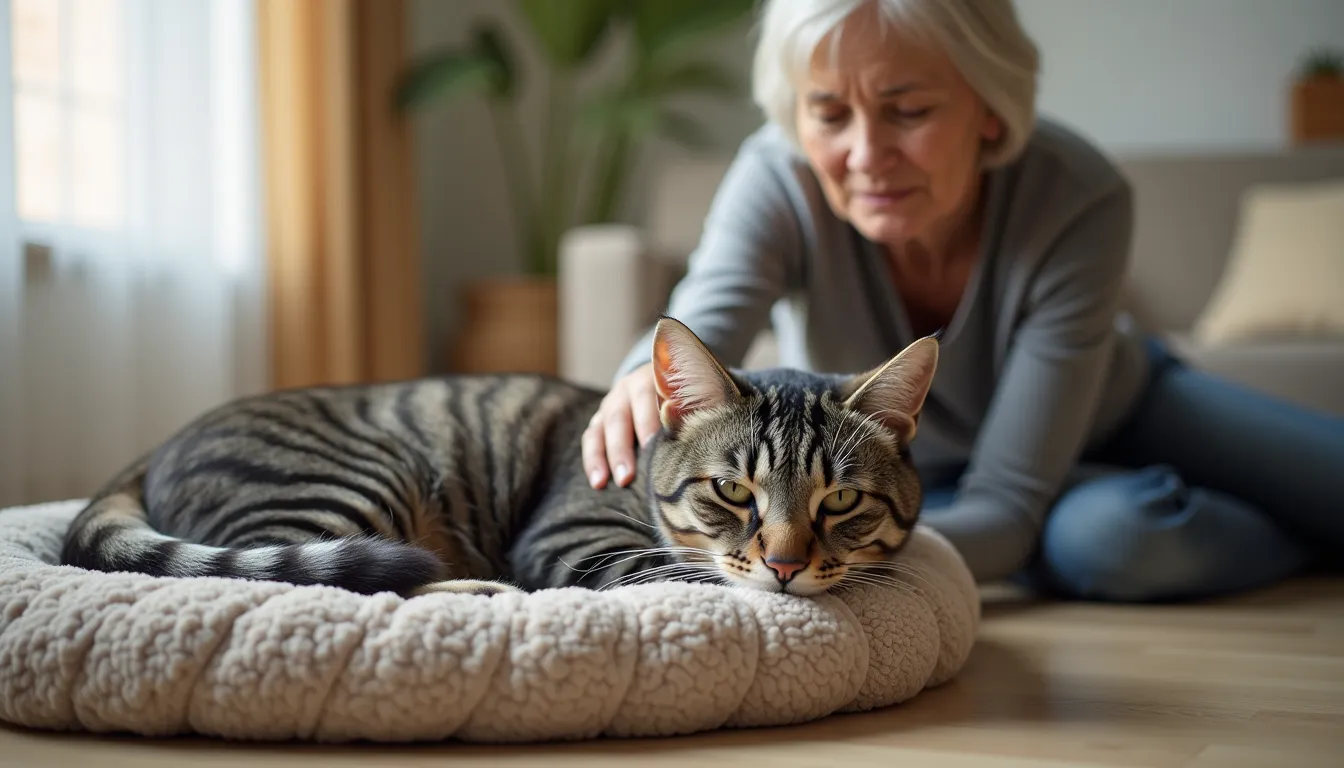As the winter chill settles in, you might notice your feline friend seems a bit different lately. Is your cat just feeling the seasonal blues, or could these changes be secret signs of aging? Discover why your furry companion’s behavior shifts might be more than just a phase – they could be telling you it’s time for some extra TLC.
The Subtle Shift: When Cats Enter Their Golden Years
Just like humans, cats experience significant changes as they age. Dr. Emily Feline, a veterinarian with 15 years of experience, explains, “Cats are considered seniors around 11 years of age, and ‘super seniors’ when they reach over 15 years old. The biological aging process begins around 7 years of age, with the risk of age-related diseases increasing from 9-10 years.”
Vocal Changes: When Meows Mean More
Have you noticed your cat becoming more talkative? This could be more than just a cry for attention. Increased vocalization can be a sign of aging, often linked to disorientation or discomfort. Sarah, a cat owner from Denver, shares, “My 13-year-old tabby, Whiskers, started meowing more at night. After a vet check, we found out he was developing arthritis. Now, with proper treatment, he’s much more comfortable.”
The Couch Potato Syndrome: Activity Level Changes
If your once-playful kitty now prefers lounging to chasing toys, it might be a sign of aging. Dr. Feline notes, “Senior cats tend to sleep more and move around less. While this is generally normal, it can also indicate underlying health issues.”
Weight Fluctuations: A Tell-Tale Sign
Keeping an eye on your cat’s weight is crucial as they age. Unintentional weight loss or gain can be a red flag for various health issues. Consider these steps:
- Monitor your cat’s eating habits
- Regularly weigh your cat or check for changes in body condition
- Consult your vet if you notice significant weight changes
The Grooming Giveaway: Changes in Self-Care
A decrease in grooming can be a sign your cat is aging or experiencing discomfort. Lisa, a cat owner from Chicago, recalls, “I noticed my 14-year-old Persian, Fluffy, wasn’t grooming herself as meticulously. It turned out she had dental issues making it painful to groom. After treatment, she was back to her pristine self!”
Vision and Hearing: The Silent Indicators
Changes in your cat’s senses can be subtle but significant indicators of aging. Watch for:
- Dilated pupils or cloudiness in the eyes
- Bumping into objects or furniture
- Less responsiveness to sounds
The Litter Box Tells a Tale
Changes in litter box habits can be more than just a behavioral issue. Dr. Feline advises, “Increased house soiling can be a sign of age-related health issues such as kidney disease, arthritis, or cognitive decline. It’s important to consult with your vet if you notice these changes.”
Keeping Your Senior Cat Comfortable
As your cat ages, making some adjustments can significantly improve their quality of life. Consider these tips:
- Provide easier access to litter boxes, food, and water
- Invest in orthopedic beds for joint comfort
- Maintain a consistent routine to reduce stress
Remember, regular vet check-ups are crucial for catching age-related issues early. As Dr. Feline emphasizes, “Early detection and treatment can make a world of difference in your senior cat’s health and happiness.”
Understanding these subtle signs of aging can help you provide the best care for your feline friend in their golden years. Just like humans, cats benefit from a little extra attention and care as they age. If you’re looking for ways to improve your own health and vitality as you age, consider checking out this inspiring story of health transformation at 70. After all, both you and your feline companion deserve to age gracefully and comfortably!
